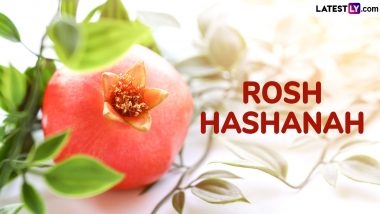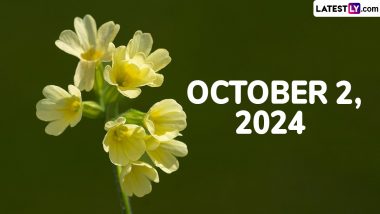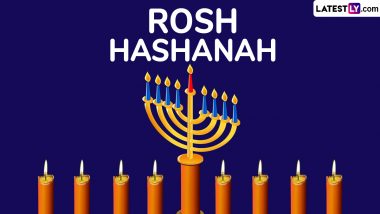Rosh Hashanah the Jewish New Year 2019 began on September 29 and goes upto October 1. Rosh Hashanah translates to “head of the year” in Hebrew. The date differs as it’s celebrated on the first day of Tishrei, the first month of the civil year and the seventh month of the ecclesiastical year in the Hebrew calendar. The biblical name for this holiday is Yom Teruah, literally "day of shouting or blasting". Rosh Hashanah leads to Yom Kippur, which means “the day of judgement”. The event is celebrated with sweet delicacies like fruits like apples dipped in honey. The day is filled with repeated blasts from the horn of ram called the “Shofar”, sweets all over the place and praying with family. Passover 2019 Date Calendar: History, Significance of the Jewish Festival of Pesach.
Rosh Hashanah has its own customs, food and celebrations, just like every other new year days. It might not be like a typical New Year celebration that takes place according to the Gregorian Calendar and has some differences. The day is mostly devoted to praying. Passover Recipes 2019: From Traditional Brisket to Matzo Ball Soup, Best Kosher Foods to Celebrate Pesach.
Date
The day is picked as the first day of Tishrei. This year, it starts from September 29 and ends on October 1. Some years, Rosh Hashanah can start in early September or it can get as late as October. The date varies every year based on the Hebrew calendar. But almost always it's in September or October.
Celebrations
Unlike any other new year’s celebration, Rosh Hashanah is a time to reflect on one's sins and make them right. People pray with their families and celebrate with sweets. The common food for the celebration is various fruits and food dipped in honey. This is to signify and wish each other a sweet new year ahead. Pomegranates are commonly eaten during Rosh Hashanah as they are believed to have 613 seeds, which also equals the number of commandments in the Torah, the Jewish written law. The repeated blasts from the horn of ram called the “Shofar” signify the power of God. It is also a powerful symbol of Abraham’s willingness to sacrifice his son, Isaac.
Rosh Hashanah Greetings
The greetings include, “Shanah Tovah”, which means “good year” in Hebrew. “U’metuka” is also added to that, sometimes. This means “good and sweet year.”
The day is meant for celebration with family in traditional ways. Working on Rosh Hashanah is frowned upon. All over the world, Jews celebrate the day by praying and indulging in sweets.
(The above story first appeared on LatestLY on Sep 30, 2019 03:04 PM IST. For more news and updates on politics, world, sports, entertainment and lifestyle, log on to our website latestly.com).













 Quickly
Quickly




















